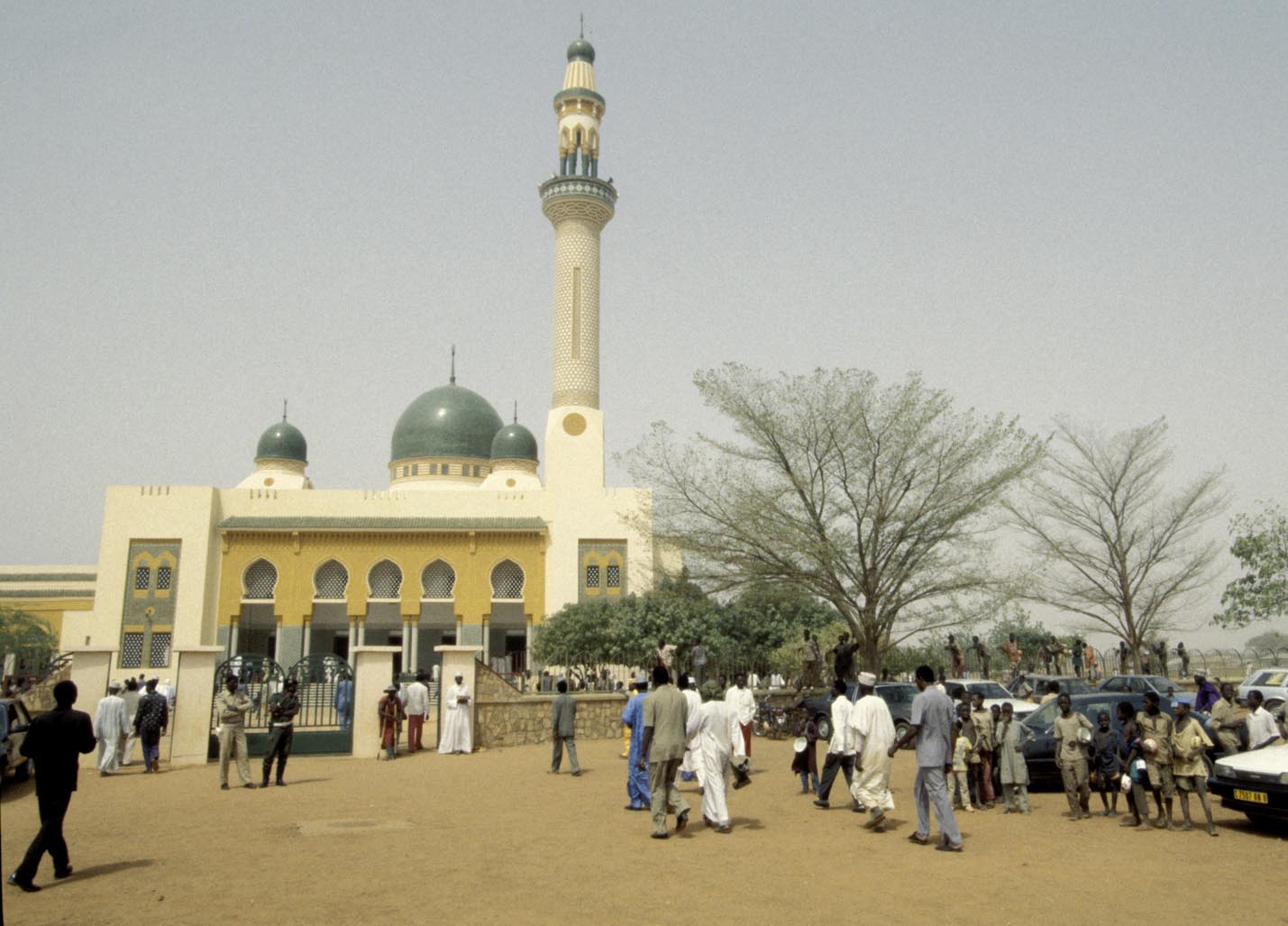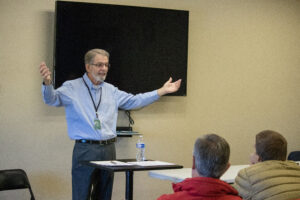
THE GAMBIA (BP)–From the top of the tree, a young man scans the mud flats. He spies what he is looking for — four men dressed in long, flowing robes and matching trousers, walking down the path. He smiles when he notices the foursome carrying their prayer mats — as every good Muslim does in Gambia.
The Koranic teacher scrambles down from the tree and sprints to the men. “I’ve been looking for you everywhere,” he says. “I climbed a tree over there to find you. You need to come back to my village and talk with me.”
The young teacher begins asking questions about the Koran, Islam’s most holy book, when one of the older men holds up his hands and says, “We are not Muslim. We are followers of the prophet Jesus and we have come to pray for your village.” The two International Mission Board representatives, Neil Simmons* and Todd Luke*, explain that they and their friends are walking the length of the entire country and praying for the people they meet along the way.
The teacher stares in disbelief at the two bearded men who speak his Mandinka language. In this part of the world, Christians are not known as people of prayer — let alone people who would inconvenience themselves by walking nearly 400 miles in temperatures reaching over 100 degrees.
After recovering from the initial shock of the news, the young teacher asks the men to come and pray for his village, noting that before now no one had ever come to pray for them.
In early August, a worldwide concerted prayer effort focused on the continent of Africa. Christians throughout the United States joined others around the world by interceding for the “dark continent” as part of a yearlong emphasis, 2001PRAY (Pray ‘Round Africa, Yes).
In an effort to prepare the hearts of the Mandinka for this special day of prayer, Simmons came up with the idea of prayerwalking the entire country. There are more than 1.3 million Mandinka in West Africa with little or no access to the good news of salvation in Jesus.
Only a small strip of Atlantic coastline keeps the Republic of the Gambia from being completely surrounded by its larger neighbor, Senegal. Never more than 30 miles wide, Gambia stretches for more than 300 miles, along both banks of the Gambia River and into the center of Senegal.
The 400-mile trek was divided into five different legs, each lasting six days. One leg was walked each month, beginning in January. Two Southern Baptist volunteers from Alaska and two from Texas joined the IMB workers.
The men walked three to four hours every morning before spreading their mats in some shade to rest in the heat of the day. After another two-hour walk in the late afternoon, they finally rested in whatever village welcomed them and offered lodging for the night.
The men walked with only daypacks, mats and water purification tablets. They depended on villages for food and water.
The team prayed for more than 50,000 Mandinka on each leg of the walk. After 40 years of evangelical witness, the Mandinka remain untouched by the gospel. Steeped in Islamic traditions, the Muslim call to prayer echoes through the land five times a day, prompting the masses to bow toward the holy city of Mecca, thousands of miles away on a different continent.
Ritual prayers are recited in Arabic, a language most do not understand.
“We walked in some very desolate areas, but what made it desolate was not the lack of trees but the darkness of Islam,” Simmons said. “These are areas with absolutely no gospel witness.
“By walking into villages, we were attempting to break down walls and misconceptions of the western missionary — that we typically drive in and deliver a program and then drive out. Don’t eat the food or water and don’t pray,” Simmons said.
Since a Muslim cannot know God, he can’t speak directly to him. Without that direct contact with God, prayer is certainly not personal to Muslims, Simmons said. Yet, in this culture it is important to be a man of prayer because the Koran commands one to pray five times a day.
“Prayer is the only way to open the door to the gospel,” Simmons said.
The unusual prayerwalking experience changed one Alaska volunteer and how he thinks about prayer. One evening after a long, hot walk, the men sat praying and reading Scripture together as the village men gathered at the mosque.
“I felt impressed to pray for the salvation of the village chief,” the volunteer said. “The realization hit me very hard that quite likely we were the only people who had ever lifted this man by name before God’s throne.
“I realized then that even in a small village in a country that is 99 percent Muslim, God does not overlook individuals.”
Nearly 30 villages offered a place of rest to the trekkers. With each stop, Simmons and Luke gave copies of the Sermon on the Mount in Mandinka and Arabic script to the village chief and Islamic leader. They encountered resistance and indifference, as well as hospitality and a hunger for the Scripture, from those they met.
In one village, Simmons and Luke told the people they came only to pray for them. When it was time for the elders to go for evening prayers at the mosque, the missionaries were invited to join them. Simmons responded that they would pray in the compound.
After a while, Luke felt impressed to go to the mosque to pray. They took up their mats and sat outside, praying for those inside. When the village elders finished praying, they brought their mats outside and sat around Simmons and Luke, expecting to be taught.
“In so many places, we were invited to come back and teach in the mosque, the place of important religious teaching,” Simmons said. “I already see a need for another walk. The next one will be a ‘teaching walk.'”
–30–
* Names changed for security reasons. (BP) photo posted in the BP Photo Library at https://www.bpnews.net. Photo title: ISLAM’S GRIP.
— Learn more about the Mandinka of Gambia: https://www.bethany.com/profiles/p_code2/1181.html
— To join the Mandinka Prayer Advocacy team, e-mail [email protected].
— Prayer requests from Africa: www.2001pray.org
— Urgent volunteer requests from Africa: https://www.imb.org/ime/urgent_volunteer_needs.htm















